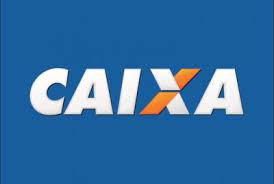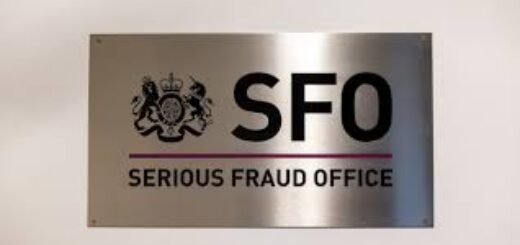DOJ FCPA Settlement: J&F Investimentos’ Bribery Schemes (Part II of V)

J&F’s Investimentos bribery scheme was pervasive and was coordinated with a senior Brazilian Finance minister and orchestrated through the use of United States banking. The Brazilian official appears to be Guido Mantega, who went on to serve as Brazil’s finance minister.
Given J&F’s large penalty in Brazil, DOJ’s resolution was reasonable in light of the consistent use of the US banking system to execute the bribery scheme. It is striking that a global company the size of J&F and its numerous subsidiaries had no apparent compliance plan, or even the pretense of one.
J&F’s bribery scheme was executed by the two brothers and owners, Joesley and Wesley Batista, and its subsidiary JBS, the largest meat company in the world, and involved four government or state-owned entities: (1) Banco Nacional de Desenvolvimento Econômico e Social (“BNDES”), a state-owned bank; (2) Caixa Econômica Federal (“Caixa”), a state-owned bank; (3) Petróleo Brasileiro (“Petrobras”), the state-owned oil and gas company; and (4) Fundaçâo Petrobras de Seguridade Social (“Petros”), a state-owned pension fund for Petrobras employees.
BNDES Bribes
Between 2005 and 2014, J&F made illegal payments to Guido Mantega, then the head of BNDES, to secure several financial and equity transactions. The bribery payments were intended to benefit Mantega and two other Brazilian officials.
To disguise the transactions, J&F created various shell companies, opened several bank accounts for the shell companies in the United States. In sum, J&F made bribery payments totaling $148 million to benefit Mantega.

Between 2005 to 2008, J&F secured BNDES financial to expand its operations. J&F agreed to pay bribes for the benefit of Mantega, then the head of BNDES, through a third-party intermediary equal to a percentage of the total financing amount. The bribes were paid to two separate shell companies at a US bank in New York City through wire payments.
In 2009, J&F continued to make bribe payments to Mantega without the assistance of the third-party intermediary. JBS, a J&F subsidiary, was seeking the sale of $2 billion in debentures. Pursuant to Mantega’s instruction, J&F opened a shell company bank account in its name.
JBS sought financing to acquire Pilgrim’s Pride, a chicken processing company in the United States. In exchange for this financing, J&F transferred $55 million in bribes to the shell company account for the benefit of Mantega and two other Brazilian officials.
In 2011, J&F opened another bank account in the name of a second shell company for the benefit of Mantega. Later that year, J&F deposited $30 million into the bank account.
Continuing for the next three (3) years, until 2014, J&F continued to make deposits into the accounts for the two shell company accounts for the benefit of Mantega and the two other Brazilian government officials. By 2014, the accounts had accumulated $148 million for the benefit of Mantega and the two other government officials.
In 2014, Mantega directed J&F to make various bribery payments to a number of Brazilian politicians. These payments were made from J&F bank accounts maintained in Brazil. These payments totaled $148 million but were not funded from the shell companies at the US bank in New York City.
Petros Bribes

Between 20111 and 2017, J&F paid $4.6 million in bribes to a high-ranking official; at Petros, a state-controlled pension fund for Petrobras employees, to secure the fund’s approval of a J&F proposed acquisition. A portion of the bribe was paid through the purchase of real estate in New York City and transfer of ownership to a Brazilian official.
In 2009, J&F established an investment company in the United States. Two years later, in 2011, J&F sought to acquire a company. The merger was subject to Petros approval. To secure that approval, J&F agreed to pay a bribe to a high-ranking Petros official, including the purchase and transfer of an apartment in New York City to the government official. A J&F executive traveled to New York City, picked out an apartment, and purchased it for the benefit of the Brazilian government official.
Petros approved the merger. J&F transferred the apartment for approximately $1.5 million in a shell company’s name and then transferred the apartment to another company controlled by the Brazilian official. Over the period of 2012 to 2017, J&F paid approximately $101,225 to cover condominium fees for the benefit of the Brazilian government official. In addition, in October 2012, J&F transferred $4.1 million in bribery payments from a shell company bank account in New York City to an offshore bank account maintained by a Brazilian government official.
Caixa Bribes
J&F paid $25 million in bribes to a high-ranking official in the legislative branch of the Brazilian government to secure hundreds of millions of dollars of financing from Caixa, a state-owned bank. The payments were made through an intermediary for the benefit of a high-level Brazilian government official. Following these payments, over the period of 2011 to 2014, Caixa made a number of loans to J&F. During this three-year period, J&F executives met with the third-party intermediary to coordinate the payment of bribes and the arrangement of the loans from Caixa.
















1 Response
[…] Thoughts. Mike Volkov does as well in a 4-Part series on Corruption Crime and Compliance. Part 1, Part 2, Part 3, Part 4. Tom and Matt Kelly go into the weeds on Compliance into the […]